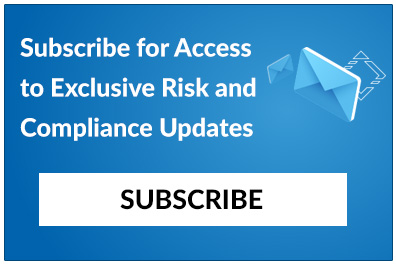Home/ Blog / Exploring Why Banks Are Turning to AI/Cognitive Analysis for Better Compliance Management Process
Banking institutions experience unparalleled challenges as they continue to optimize their compliance management process. Complicated portfolios, strict budgets, and intricate reporting requirements make monitoring and swiftly responding to compliance-related problems challenging. Advanced AI technology can assist in managing these challenges, yet Deloitte’s 2021 Compliance Survey discovered that less than 50% of compliance management functions were automated by most businesses. This suggests that there is still much room for compliance professionals to enhance their work processes.
In the sophisticated and dynamic banking world, the arrival of AI and cognitive analysis is transforming compliance management. This revolution is not just a momentary trend but a substantial shift, redefining the paradigms of regulatory adherence in the banking sector. Integrating AI tools to enhance the compliance management process demonstrates the banking industry’s commitment to embracing technological advancements for enhanced efficiency, accuracy, and strategic foresight.
The Evolution of Compliance Management in Banking
Traditionally, the compliance management process in banks has been labor-intensive and manual. Compliance professionals would examine vast amounts of data, interpret complex regulations, and ensure adherence to these standards. This procedure, while thorough, could be better handled to overcome challenges such as human error, inefficiency, and mounting costs. In such instances, AI is playing a positive role as a more efficient alternative solution. Some of its valuable aspects are outlined below:
AI and Cognitive Analysis
The implementation of AI and cognitive analysis in compliance management has been a game-changer. Banks are leveraging new technologies to interpret and precisely apply changing regulatory requirements. AI tools including compliance management software, offer capabilities like Natural Language Processing (NLP) and Machine Learning to analyze regulatory texts, interpret their implications, and ensure that the bank’s operations align with new guidelines.
Enhanced Accuracy and Efficiency
One of the primary benefits of integrating AI into the compliance management process is the significant enhancement in accuracy and efficiency. AI systems can process and analyze data at a speed and volume that human teams cannot reach. This rapid processing leads to quicker decision-making and a more proactive approach to the compliance management process.
Cost-Effective Compliance Management
Another critical advantage of AI in compliance management is cost-effectiveness. Banks can significantly cut operational costs by automating routine tasks and reducing the need for an extensive workforce. This efficiency is not at the expense of quality; AI systems often demonstrate higher accuracy and consistency in compliance monitoring than traditional methods.
Comparison of Non-AI-based Compliance Processes Vs. Advanced AI-based Processes
The evolution from non-AI-based compliance processes to advanced AI-driven compliance in the banking sector marks a significant shift in how banks manage regulatory adherence.
Non-AI-Based Compliance Approach
Initially, banks relied on essential software tools like spreadsheets and Excel for compliance management processes. This approach was quite slow and quite unlike the AI-based compliance management solution. Some of the major limitations that have been observed in the non-AI-based systems include the following.
Limited Data Processing Capabilities
Tools like Excel are constrained in handling large volumes of data, making them less efficient for complex compliance tasks.
Prone to Human Error
Non-AI compliance processes depend heavily on traditional data entry and analysis. Even with software assistance, this method leads to potential errors and inconsistencies.
Time-Consuming
Compliance officers spent considerable time inputting, updating, and verifying data in human-driven compliance tools, leading to delays in compliance reporting.
Lack of Proactive Analysis
For traditional compliance management processes, non-AI tools offered little in terms of trend analysis to predict regulatory changes or provide insights beyond the data manually entered the system.
The AI-Driven Paradigm Shift
The integration of AI and cognitive analysis into compliance management has brought transformative changes, highlighted below.
Advanced-Data Processing
AI systems can handle and analyze vast amounts of data far beyond the capacity of legacy software tools, providing deeper insights into compliance requirements.
Reduced Error Rates
With AI’s precision and learning capabilities, the risk of human error is significantly minimized, leading to more reliable compliance management.
Efficiency and Speed
AI-driven compliance management processes automate routine tasks, drastically reducing the time required for compliance activities and enabling real-time monitoring and reporting.
Predictive and Adaptive Compliance
AI compliance management systems and tools review data trends to anticipate effects of regulatory changes and recommend compliance strategies proactively, a feature not possible with traditional software.
Real-World Impact and Benefits
The shift to AI-based compliance management has yielded substantial benefits, as reported by experts.
- 40% Reduction in Processing Effort
- 30% Decrease in Cycle Time
- 30% Reduction in Document Anomalies
- 40% Cost Reduction
Critical Values of Integrating AI into the Compliance Management Program
The banking industry’s shift towards cognitive analysis for bank’s compliance management process is driven by a need to address several critical challenges and leverage the potential of AI for more effective compliance strategies.
Navigating Complex Regulations with Cognitive Analysis
Banks are increasingly recognizing the constraints of traditional compliance methods in dealing with complex and ever-changing regulations. Leveraging AI offers a more nuanced and practical approach.
Understanding Intricate Regulations
AI helps decipher complex regulations and guidelines, which are often challenging to comprehend and apply using traditional methods.
Addressing Inconsistencies
AI-based tools help identify and reconcile overlapping and inconsistent policies that do not align with current process flows to enhance the bank’s compliance management process.
Enhancing Regulatory Interpretation
AI-driven cognitive analysis goes beyond surface-level checks, enabling banks to grasp the regulatory intentions more effectively and map them accurately to relevant processes and systems.
Reducing Manual Intervention and Error Rates
The traditional approach often required extensive manual intervention by compliance experts, which was time-consuming and prone to errors. Cognitive analysis through AI minimizes these issues in several ways.
Automating Routine Tasks
By automating the analysis and interpretation of regulatory documents, compliance management system software reduces the dependency on manual labor.
Increasing Accuracy
Leveraging technologies such as NLP and ML, cognitive systems can detect semantic similarities and discrepancies with higher precision, leading to a more accurate compliance management process.
Real-Time Compliance and Predictive Analysis
Cognitive analysis transforms compliance management from a reactive to a proactive function.
Dynamic Response to Regulatory Changes
AI systems can adapt to new regulations and guidelines quicker, ensuring banks remain compliant in real time.
Predictive Capabilities
These systems can anticipate the effects of potential compliance issues and suggest corrective actions before they become problematic.
Conclusion
To conclude our discussion of why banks are turning to AI and cognitive analysis for better compliance management, it’s clear that this technological shift is not just a trend but a necessary evolution in the banking industry.
AI tools have transformed the compliance management process, offering enhanced accuracy, efficiency, and proactive compliance strategies. The shift from traditional software-based methods to AI-driven processes has significantly improved processing time, accuracy, and cost-effectiveness.
Integrating AI and cognitive analysis in compliance management is more than just a technological upgrade; it’s a strategic move towards a more resilient and agile banking sector.Predict360 Compliance Management Software (CMS) stands at the forefront of this transformation, offering a comprehensive solution that meets the evolving demands of regulatory compliance.
The Predict360 platform, endorsed by the ABA, represents the next generation of compliance management systems. It exemplifies the integration of AI in a bank’s compliance management process, offering a suite of features that align perfectly with the needs of modern banks.
- Predict360 CMS automates and streamlines compliance monitoring, activity management, and regulatory change management, significantly reducing the workload and increasing efficiency.
- The Predict360 Compliance Management Tool provides executive dashboards with real-time data, enabling proactive management and decision-making.
- Predict360 CMS offers a single platform for all compliance-related information, discussions, and documents, ensuring transparency and ease of access.
Request a Demo
Complete the form below and our business team will be in touch to schedule a product demo.
By clicking ‘SUBMIT’ you agree to our Privacy Policy.



